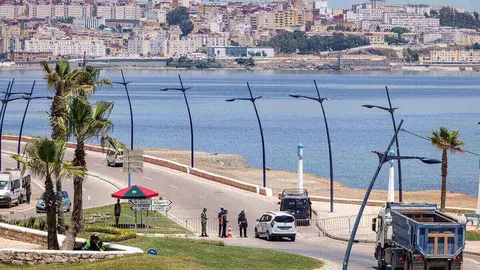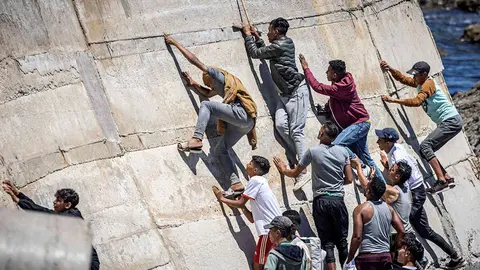Numerous arrests in mass illegal crossing attempts between Morocco and Spain
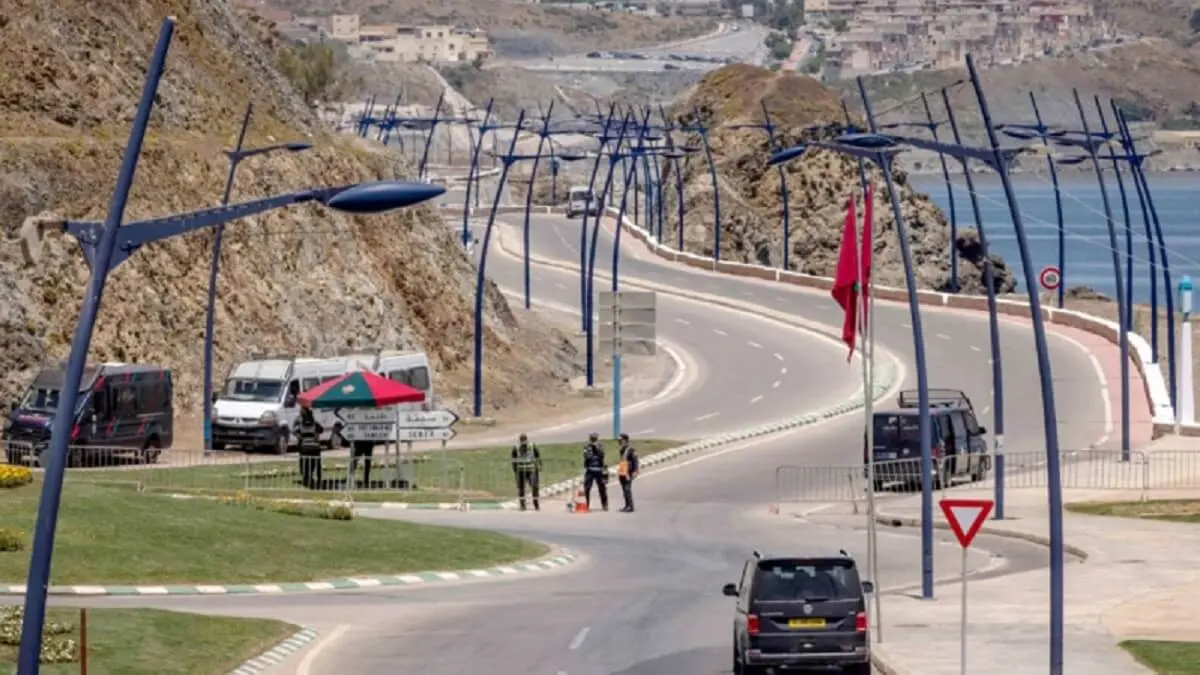
Saturday and Sunday saw tense hours at the border crossings between Morocco and Spain.
The areas between Nador and Melilla and between Tetuan and Castillejos and Ceuta witnessed difficult moments due to the large influx of migrants allegedly trying to cross the border crossings clandestinely to reach Spanish territory from Moroccan soil, all this after several days of campaigns on social networks allegedly inciting to make these illegal mass crossings during the night of Saturday to Sunday.
شغب في الفنيدق إثر فشل اقتحام سبتة.. مراهقون يخربون ويواجهون الأمن بالحجارة.
— Leɛyun 🇲🇦 ۞ (@5_ersito) September 15, 2024
الحاصول.. الله يدير شي تاويل ديال الخير 🤲🤲.. هادشي لي نطلبو ويحفظ هاد البلاد من أعداء الخارج وخونة الداخل. pic.twitter.com/DAWr2EOiaD
The coordination of Moroccan and Spanish security forces was important and an intense security operation was deployed on both sides to secure these hotspots as much as possible.
In the case of Morocco, the authorities in charge of security were put on high alert, deploying police, Royal Gendarmerie and auxiliary forces to control the area and prevent any attempt to cross the border irregularly. The Spanish authorities also deployed several armoured army vehicles to intervene in the event of border assaults, with the assistance of the National Police and the Guardia Civil.

Moroccan officials also prepared special buses at the crossing to transport and return people who might try to migrate irregularly. The positions were reinforced with armoured vehicles and trucks with water cannons to avoid tense situations, and hundreds of arrests were made to protect the border crossings and promote security.
Police sources revealed that most of those arrested for the attempted mass illegal crossing at the borders between Morocco and Spain, after allegedly being instigated by various campaigns through social networks, are of Moroccan origin, a significant part of them minors.
لا حول ولا قوة الا بالله العلي العظيم
— Leɛyun 🇲🇦 ۞ (@5_ersito) September 15, 2024
هذه نتيجة تشجيع التفاهة الرقمية
الفنيدق ..مواجهات عنيفة ورشق القوات العمومية بالحجارة وإصابات في صفوف ورجال الأمن وعدد من القاصرين بعد محاولة اقتحام معبر سبة. pic.twitter.com/LZHKUPNcxl
Security sources also indicated that among the detained migrants allegedly planning to illegally cross the borders of Ceuta and Melilla were Algerians, Tunisians, sub-Saharan Africans and even Syrians, according to local media outlets such as Rue 20.
In the early hours of Sunday, many migrants approached the border crossings, especially in the Ceuta area, and security forces arrested hundreds of them and prevented them from entering the Spanish autonomous city.
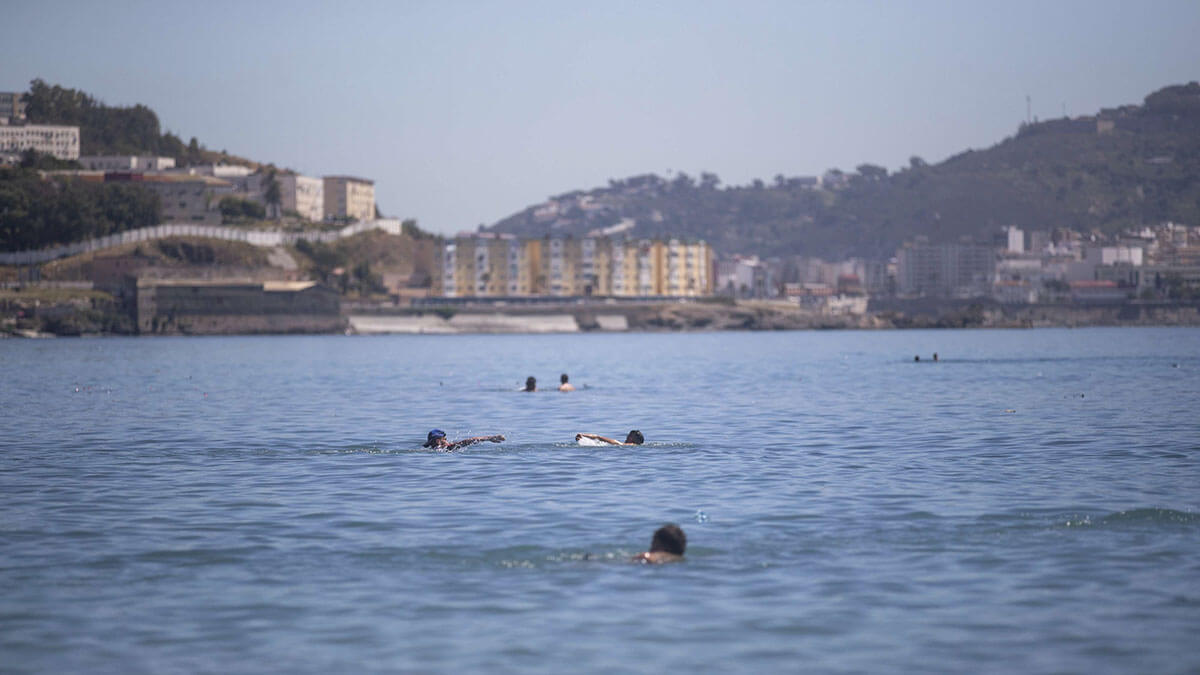
There were very complicated moments because some migrants threw stones and tried to attack security forces when they were prevented from crossing, which led to clashes that were controlled by the police forces, who managed to restore calm.
Even so, a number of aggressions left several officers injured. Specifically, on 15 September, Ceuta endured up to three attempted crossings, all of them through the fence, organised by hundreds of sub-Saharan and Moroccan immigrants, the vast majority of whom were minors, according to various media outlets such as El Faro de Ceuta.
In addition to stone throwing at the security forces, there were acts of vandalism and various items set on fire in the surrounding areas, especially in the vicinity of the border crossing with Ceuta. Thus, the last few hours in Castillejos (Fnideq), a Moroccan enclave close to Ceuta, have been violent, putting the entire border area at risk.
The Moroccan authorities also continued to take strict measures to prevent the infiltration of migrants, setting up security checkpoints along the roads leading to Ceuta. Cars arriving in the area were carefully searched for suspected illegal migrants.
Security elements from the Moroccan police, the Royal Gendarmerie and auxiliary forces managed to deport hundreds, relocate others and detain minors.
The scenario of the presence of hundreds of minors among the candidates for clandestine migration through Ceuta came as a surprise and left big questions about who is behind this campaign, which exceeded all expectations, as there are minors who are unaware of the dangers involved in this crossing.
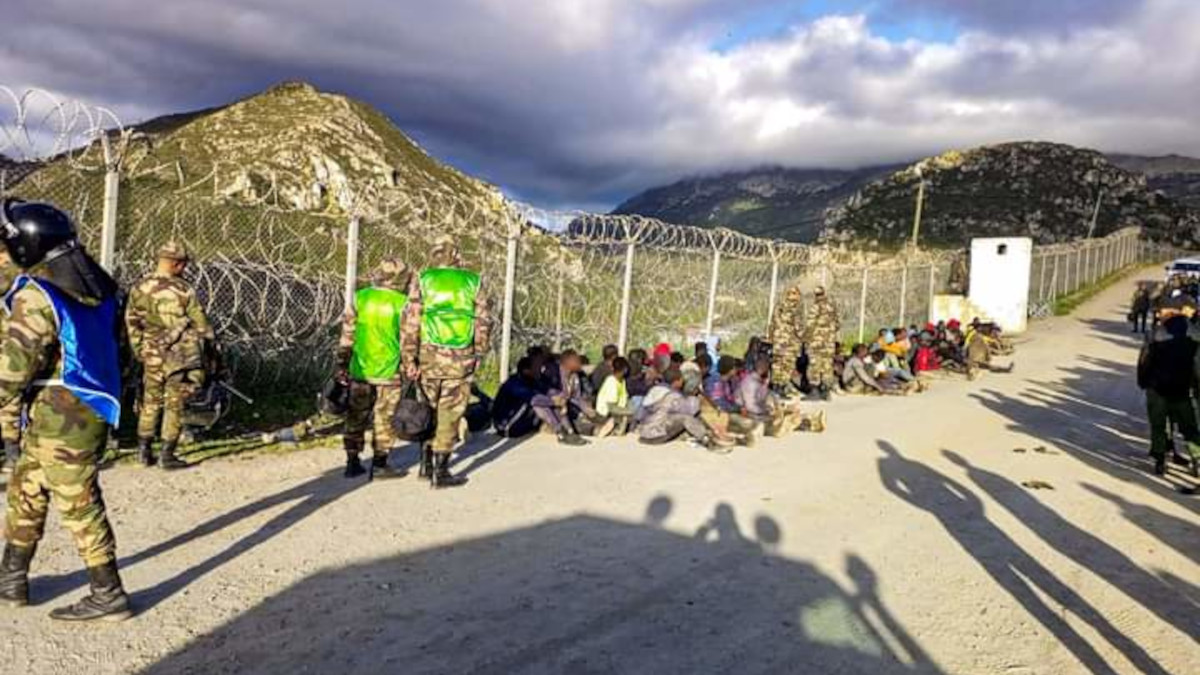
Great efforts in the face of migratory pressure
The Moroccan police have made great efforts in recent days to combat the pressure of illegal migration. Thus, the police have arrested hundreds of people in recent days for allegedly intending to cross illegally into Spanish territory, and dozens of migrants have also been deported, mainly from Tunisia and Algeria, who were returned on flights via Tunisia because diplomatic relations between Morocco and Algeria are broken after the Algerian state broke off relations in August 2021, accusing the Moroccan kingdom of ‘hostile acts’ and because of deep political differences on issues such as the sovereignty of Western Sahara.
It is expected that in the coming hours and days security arrangements will continue to be maintained to prevent possible future irregular mass crossings through sea and land routes to reach the Spanish autonomous cities of Ceuta and Melilla from Moroccan territory.
These episodes have once again highlighted how irregular migration continues to be a very important problem that Morocco and Spain continue to fight with close cooperation that continues to bear fruit, as in this case with the strict control of the situation this past weekend, especially in the border area near Ceuta.
The aim is to prevent illegal mass migration, which in many cases is promoted by criminal gangs involved in people smuggling. Migrants who risk their lives to flee difficult situations in their countries in order to reach European territory and have a better future. Morocco and Spain are jointly combating this phenomenon, which represents a major migratory pressure and causes hundreds of deaths in various migratory waves.
In August, for example, hundreds of migrants tried to swim to Ceuta, creating Dantesque images that the security forces are trying to prevent through their actions in the area.
Morocco and Spain have been working together for many years to combat illegal migration and maintain security in border areas. This cooperation has become even closer in recent years due to the excellent diplomatic relations between the two countries, reinforced after the Spanish government's decision to recognise Morocco's proposal for Western Sahara of broad autonomy under Moroccan sovereignty as the ‘most serious, credible and realistic’ way to resolve the Sahrawi dispute that has lasted almost five decades since Spain left the territory and the end of the colonial period there.

